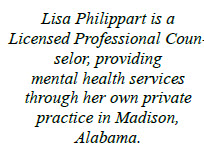 By: Lisa Philippart
By: Lisa Philippart
Rumination is the mental habit of repetitive overthinking about the past or present. There are three common types of rumination. Depressive rumination involves ruminating about your own mistakes, flaws, or failures, and typically results in excessive shame, guilt, regret, and sadness. Angry rumination involves ruminating about other people’s mistakes, flaws, or failures and usually leads to excessive anger, frustration, and irritability. Jealous rumination involves ruminating about what other people have, what you don’t have, or how unfair things are for you relative to others, and usually leads to excessive jealousy and resentment. Here are some examples of rumination: “I still can’t believe I messed up that relationship. I’ll never find someone like that again,” or, “If I hadn’t been so awkward in our first meeting, she’d trust me with more responsibility. Why can’t I just be normal with people? I’ll never move up in this job.”
 Let’s address some problems associated with rumination. Ruminating about your faults and failures is one of the primary drivers of negative self-beliefs of all kinds. It’s one thing to have faults—we all do—it’s another thing to constantly remind yourself of them. And this type of rumination creates low self-confidence, poor self-esteem, and even depression. Chronic anger is the result of chronic rumination. If you want to feel less angry, stop trying to manage your anger, and learn to manage your angry ruminations. Some ruminators struggle with the inability to forgive or let go. Forgiveness is not a single choice. Rather, it’s the result of habitually refusing to ruminate and being intentional about letting go of unhelpful ways of thinking. Rumination can also cause chronic stress and sleep problems. When you are constantly telling yourself how bad everything is, criticizing, complaining, or judging, it’s natural for your body to be in a state of constant stress, which is prohibitive for healthy sleep.
Let’s address some problems associated with rumination. Ruminating about your faults and failures is one of the primary drivers of negative self-beliefs of all kinds. It’s one thing to have faults—we all do—it’s another thing to constantly remind yourself of them. And this type of rumination creates low self-confidence, poor self-esteem, and even depression. Chronic anger is the result of chronic rumination. If you want to feel less angry, stop trying to manage your anger, and learn to manage your angry ruminations. Some ruminators struggle with the inability to forgive or let go. Forgiveness is not a single choice. Rather, it’s the result of habitually refusing to ruminate and being intentional about letting go of unhelpful ways of thinking. Rumination can also cause chronic stress and sleep problems. When you are constantly telling yourself how bad everything is, criticizing, complaining, or judging, it’s natural for your body to be in a state of constant stress, which is prohibitive for healthy sleep.
 Let’s look at some of the possible origins of rumination. Rumination frequently begins in childhood when we imitate ruminations that we hear from our parents or primary caregivers. For others, rumination may originate in ego boosting. While it leads to a lot of negative outcomes in the long-term, in the very short-term, rumination can give a brief boost to our ego. This is especially true for angry or jealous rumination, which is reinforcing and keeps the habit strong. Similarly, rumination often gets maintained as a habit because in the very short-term it provides a relief from the anxiety of helplessness or uncertainty. It, in a sense, becomes a coping mechanism…a not very healthy or effective one. And finally, ruminating often becomes a way to rationalize or avoid taking action. Because it feels similar to problem-solving, it’s easy to end up avoiding or procrastinating on taking some sort of assertive action by continuing to think.
Let’s look at some of the possible origins of rumination. Rumination frequently begins in childhood when we imitate ruminations that we hear from our parents or primary caregivers. For others, rumination may originate in ego boosting. While it leads to a lot of negative outcomes in the long-term, in the very short-term, rumination can give a brief boost to our ego. This is especially true for angry or jealous rumination, which is reinforcing and keeps the habit strong. Similarly, rumination often gets maintained as a habit because in the very short-term it provides a relief from the anxiety of helplessness or uncertainty. It, in a sense, becomes a coping mechanism…a not very healthy or effective one. And finally, ruminating often becomes a way to rationalize or avoid taking action. Because it feels similar to problem-solving, it’s easy to end up avoiding or procrastinating on taking some sort of assertive action by continuing to think.
In my next article, we will examine key insights about rumination and some tips and tools for dealing with ruminating thoughts.
By: Lisa Philippart
Licensed Professional Counselor







